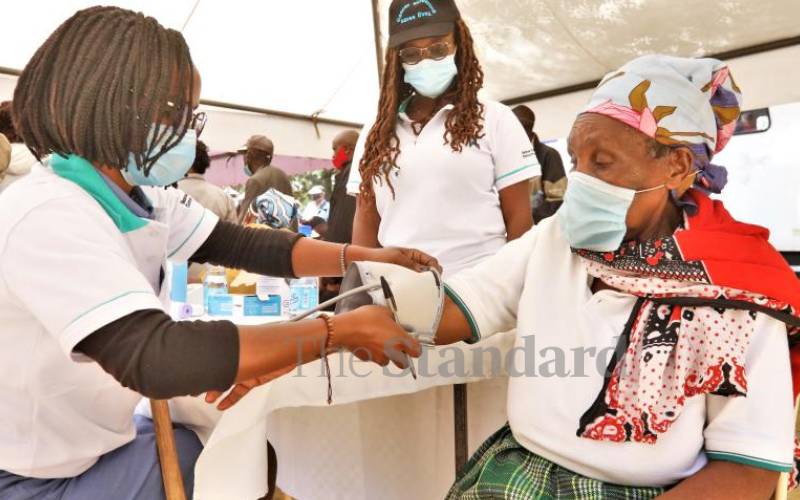×
The Standard e-Paper
Kenya’s Boldest Voice

Medic attending to Zipporah Wangeci,82, at Central Park in Nanyuki Town, Laikipia County. January 19, 2021. [Mose Sammy, Standard]
The Ministry of Health is now using men as advocates in its efforts to boost the uptake of the Human Papillomavirus (HPV) vaccine.